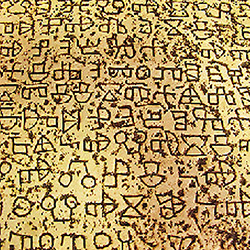
Commissioned by Another Timbre for the quarantine commissions series, Hlaholika was developed by composer Adrián Demoč for the Apartment House ensemble as a quintet of violin, double bass, clarinet, viola & piano, using the configurations for 3 other works performed here by Apartment House; plus a piece for an ensemble from the Janacek School of Music in the Czech Republic.
In Stock
Quantity in Basket: None
Log In to use our Wish List
Shipping Weight: 3.00 units
EU & UK Customers:
Discogs.com can handle your VAT payments
So please order through Discogs
Sample The Album:
Adrian Democ-composer
Reiad Chibah-viola
Mark Knoop-piano
Heather Roche-clarinet
Students of the Janacek Academy of Music in Brno-performers
Mira Benjamin-violin
Mark Knoop-piano
James Opstad-double bass
Click an artist name above to see in-stock items for that artist.
Label: Another Timbre
Catalog ID: at169
Squidco Product Code: 30023
Format: CD
Condition: New
Released: 2021
Country: UK
Packaging: Cardboard Gatefold
Tracks 1, 3 and 4 recorded at Goldsmiths Music Studio, in London, England, in August, 2020, by Simon Reynell.
Track 2 recorded at Janacek Academy of Music and Performing Arts, in Brno, Czech Republic, May, 2005.
"Second CD release by Adrian Democ following his highly regarded debut Ziadba. Four beautiful chamber works, three performed by Apartment House, one by an ensemble from the Janacek School of Music in the Czech Republic. The title track, Hlaholika, was commissioned by Another Timbre as one of the label's 'quarantine commissions' during Covid lock down in 2020. The front cover shows a stone tablet engraved in Glagolitic script."-Another Timbre
Interview with Adrián Demoč by Lukáš Borzík
Let's start at the end of the disc, with the final track - the duo for violin and double bass, because I know you're particularly fond of it. What is it that you like about the recording?
First of all, I'd like to say that I'm really happy with the whole album; the musicians played all the pieces with great care and devotion.
But to answer directly, in 2019 Slovak violinist Milan Paľa asked me for a piece for violin and double bass. During the writing process I had a dream where I was listening to Circles and Landscapes, Philip Thomas's CD of piano works by Jürg Frey. I imagined the duo playing this piece with Philip's piano sound doubling the music. So finally the piece received the title ...mit Simon und Jürg (und Philip ist auch...), and is scored for violin, double-bass and optional piano as a third instrument - which just doubles the "chords" of violin and double-bass and may be placed whether close or from distance, in another room for example. '...mit Simon und Jürg (und Philip ist auch...)' is a tiny homage to three extraordinary musicians: Jürg Frey, Philip Thomas and Simon Reynell. I find the Circles and Landscapes album a very special encounter between the composer's aesthetics, the way of recording and of the performer.
Musically speaking, this piece is probably the most abstract on the disc. But when I listened to the studio recording, I felt I had found something which I hadn't been really been aware of (or had suspected, but simply didn't have proof). It shares something of the same bell-like quality as the rest of the pieces of the album, but this time it resembles 'decay' rather than 'attack', both in a musical and emotional sense. That's why I´m happy that the piano wasn't included in this recording, as the piano chords might articulate the music rather too clearly. I think that in this duo version, the piece has something of a liminal quality (in a timbre/chord sense in this case) which I find inspiring for my future work.
But I cannot say what future pieces will 'be about', as I believe the music should say it, and not me beforehand.
Next Hlaholika, tell us about how this piece came about, and why the unusual instrumentation?
The unusual instrumentation of Hlaholika is a result of a rather pragmatic thinking for this project. Simon Reynell asked for a new piece for Apartment House for the CD, which was also going to include the piece for violin and double bass and a trio for clarinet, viola and piano. So I decided to write a quintet that would use all the musicians involved in the other two pieces. The numbers of musicians and the material itself required a longer form and the piece is almost twenty minutes long.
I was eager to rehearse and record the piece with the musicians for the recording session, but due to Covid restrictions I wasn't able to travel to UK, which was really frustrating, of course. I often keep shaping my pieces till the very last moment, when I really 'face it'. That's also the decisive moment when you really start to understand what the piece is about - where you discover that the piece might also be about something that you were not really aware of, even though you composed it yourself. And also you might help the musicians to discover something which might otherwise stay hidden (often even a slight change of, let's say, the metronome mark may cause a huge change in the 'light' of the music). But I think the Apartment House musicians found a key to the piece during their rehearsals and recordings.
The Old Slavic Glagolitic ("Hlaholika" in Slovak language) script consists of three elements - a circle, a triangle and a line. Did you think about this aspect when you were composing Hlaholika?
Yes, but this metaphor came to my mind only when the piece was almost finished (the original working title of the song was simply "Zvony" which means "Bells"). My Hlaholika also uses a very restricted number of elements from which a certain musical situation is made. The listener will certainly not have a problem recognizing these elements.
I got fascinated by the combination of the words "hlahol" ("a mixture of strong, incoherent, but pleasant sounds", according to Slovak dictionary) and a certain "methodics" (in Slovak "metodika" with the suffix -ika). I struggled to order these restricted sound elements and the overall musical process and to create from them a convincing and understandable language. At the same time, the word Hlaholika in Slovak associates the ringing of bells (as we use the word "hlahol" mostly in association with bells), which I think captures this piece quite well.
So as you can see, the title refers to multiple layers of inspiration.
And what does the title Ma fin est mon commencement refer to?
It refers, of course, to Machaut's famous composition, which is remarkable for a very consistent counterpoint, which very cleverly "displays" the text itself (the third voice is a strict retrograde of the first voice, the second voice "goes back to its origin in the middle of the composition). I wrote the piece for the Slovak ensemble Ricercata. I was searching for some kind of more naked three-part texture, although in my first attempts more expressive passages kept appearing in contrasting blocks. Gradually, however, the composition crystallized into the form in which it was premiered. It is based on a strict contrary motion of the outer voices, the middle voice remains static almost all the time (I entrusted that to the piano, the biggest and most powerful instrument of the trio). The form of the piece could be described as a 1) long A (quiet) and 2) a final coda (even quieter).
In this piece you have abandoned musical contrasts and created a fragile music for trio. At the premiere on Slovak Radio, I felt completely disarmed by the power of tenderness and the extraordinary beauty of this work.
Thank you, I'm sincerely touched by your reaction. I think the piece itself "demanded" that I leave aside the strong contrasts you mention. I've tried several options while composing, but at the moment of writing, a break usually occurs, when you start to identify with the music in some way. In this case, I identified with the music at the moment it became this piece you heard at the concert. By the way, the already mentioned strict contrary motion is very important for the composition. But there are a few exceptions in the score, which are quite important to me. Perhaps a visit to Tallinn also played a role. I remember staring into the window of Arvo Pärt's house in the late hours. For all the exceptions to this counterpoint rule, I would draw flowers (similarly to Pärt in the Pro Alinna manuscript).
"Lešenie k zahĺbeniu" (which means "Scaffold to an immersion/meditation") is an immersion towards concentrated silence. Tell me more about this piece...
If I were to write Lešenie k zahĺbeniu today, the music would definitely look different, but it remains an important piece for me. I consider it something like my opus 1.
It's written for quite an unusual instrumentation: alto or bass flute, bass clarinet, alto saxophone, bassoon, French horn and percussion (gongs and tam-tam). Probably because of that, it's only been performed once.
The whole composition is based on one chord, which is constantly flowing and trembling with the help of a precisely written vibrato.
I wrote most of this piece in Lithuania and finished it in Czech Republic, all the time concerned just about the musical "being" of the piece. But while rehearsing it with the musicians, I found that this music also speaks about rain, about the nostalgia I experienced in the trams of Vilnius, and about feelings of solitude.

The Squid's Ear!
Artist Biographies
• Show Bio for Adrian Democ "Adrian Demoč is a composer and occasional performer and improviser (fujara, piano). He studied with Martin Smolka, Frantisek Emmert, Doina Rotaru and Osvaldas Balakauskas in Brno, Bucharest and Vilnius. In 2008, Adrian received the Leoš Janáček foundation prize and later continued his doctorate studies with Martin Smolka (his thesis "Spectral music and its perception of time" was published in 2012), obtaining a PhD. In 2010 he was the head of the jury of the music discipline at NEU/NOW Nantes festival organized by ELIA European League of Institutes of the Arts. In 2011 he was the selected composer for the United Nations Youth Orchestra (Benasque, Spain) with his piece Three movements for string orchestra (2011). Adrian's music has been performed so far in Slovakia, Czech Republic, Germany, Austria, Romania, Lithuania, France, Spain and USA. His music ranges from orchestral (Symphony, Zikkurat) and chamber music to conceptual scores (Chess) and multi-media performances (Bioprodukt)." ^ Hide Bio for Adrian Democ • Show Bio for Reiad Chibah "Reiad Chibah attended the Purcell School and the Royal College of Music. Whilst at the R.C.M. Reiad won all the undergraduate viola prizes and string chamber music prizes. On graduating Reiad was awarded the Constant and Kit Lambert prize - the college's major award for ensemble playing. His performance of the Walton Viola Concerto with the R.C.M. Symphony Orchestra was broadcast on B.B.C. Radio 3. Reiad later travelled to Jerusalem for lessons at the Rubin Academy of Music with Maya Glizarova. Reiad's orchestral experience includes work with the Northern Sinfonia and The Academy of St Martin-in-the-Fields as well as guest principal with the Royal Liverpool Philharmonic. He has performed with chamber ensembles such as the Belcea Quartet, the Manor House String Quartet, New Music Players, Lontano and Opus 20 - groups with whom he has recorded, broadcast and appeared at events such as Wien Modern and the Dartington International Festival." ^ Hide Bio for Reiad Chibah • Show Bio for Mark Knoop "London based pianist and conductor Mark Knoop is known for his fearless performances and individual interpretations. He has commissioned and premièred countless new works and worked with many respected composers including Michael Finnissy, Joanna Bailie, Bryn Harrison, Bernhard Lang, Matthew Shlomowitz, Jennifer Walshe and Steven Kazuo Takasugi. His versatile technique and virtuosity also brings fresh approaches to the standard and 20th-century repertoire. Mark performs regularly throughout Europe, the United Kingdom and Australia and in New Zealand, South Korea, Mongolia, United States of America, Canada and at festivals including Transit (Leuven), Ultima (Oslo), Huddersfield, London Contemporary Music Festival, Borealis (Bergen), Spor (Århus), Athelas (Copenhagen), and MaerzMusik (Berlin). He performs with various ensembles including Plus-Minus (London/Brussels) and Apartment House (London), and has conducted EXAUDI (London), Scenatet (Denmark), and London Sinfonietta. His recordings of music by John Cage, Richard Beaudoin, Karlheinz Stockhausen, Peter Ablinger, and David Lumsdaine have been critically acclaimed." ^ Hide Bio for Mark Knoop • Show Bio for Heather Roche "Born in Canada, clarinetist Heather Roche trained in England, lived in Germany for 7 years and now lives in London. She has performed at some of the major European festivals, including musikFest (Berlin), BachFest (Leipzig), Musica Nova (Helsinki), Acht Brücken (Cologne), the International Computer Music Conference (Huddersfield, Ljubljana), the Dias de Música Electroacústica (Seia, Portugal) and the Agora Festival (Ircam, Paris). She has also performed solo programmes at the Zagreb Music Biennale, the Huddersfield Contemporary Music Festival, the New York Electroacoustic Symposium, at CIRMMT (Montreal), Unerhörte Musik (Berlin), Eavesdropping (London), and with the Birmingham Electroacoustic Sound Theatre (BEAST). She has performed with ensembles and orchestras including Musik Fabrik (Cologne), the WDR Orchestra (Cologne), mimitabu (Gothenburg), the London Symphony Orchestra (London), ensemble Garage (Cologne), ensemble interface (Berlin), the Riot Ensemble (London), the Alisios Camerata (Zagreb), and ensemble proton (Bern). She also plays across the UK in a trio with Carla Rees (flutes) and Xenia Pestova (piano) and in 2015 formed an duo with the accordionist Eva Zöllner, with whom she has played across Germany, the UK and in Portugal. She is a founding member of hand werk, a 6-person chamber music ensemble based in Cologne, and worked with the group from 2010-2017. She has solo CDs out on the HCR/NMC and Métier labels. Please see the Discography for further details. In 2014 she was awarded a DIVA (Danish International Visiting Artists Fellowship), and lived in Copenhagen for two months. Since 2016 she has acted as the Reviews Editor for TEMPO, a quarterly journal for contemporary music published by Cambridge University Press. Her website is host to one of the most widely read new music blogs on the Internet. In 2017 it had 75,000 hits from around the world. She successfully crowdfunded in 2014 in order to host her first composition competition. Six young composers were chosen out of 270 applicants to write new pieces, which were premiered in 2016. She is a fervent advocate of collaboration, and her PhD research at the University of Huddersfield (under the supervision of Dr. Philip Thomas) explored the nature of dialogue within performer-composer relationships. She has given workshops in instrumental technique and/or iPad use in performance all over Europe, for example in London, Munich and Copenhagen. Heather completed her Masters of Music (Orchestral Training) in 2006 at the Guildhall School of Music and Drama in London, studying under Joy Farrall and Laurent Ben Slimane, in addition to conducting with Sian Edwards. Following her degree she completed residencies with the International Ensemble Modern Academy, at IMPULS in Graz and with ensemble recherche in Freiburg, the Darmstadt Summer Courses 2008 and 2010 and the International Ensemble Modern Academy in Innsbruck, Austria. She has performed in masterclasses with Michael Collins, Ernesto Molinari and Shizuyo Oka, to name a few. She completed her BMus in 2005 at the University of Victoria, Canada, studying under Patricia Kostek." ^ Hide Bio for Heather Roche • Show Bio for Mira Benjamin "Mira Benjamin is a Canadian violinist, researcher and new-music instigator. She performs new and experimental music, with a special interest in microtonality & tuning practice. She actively commissions music from composers at all stages of their careers, and develops each new work through multiple performances. Current collaborations include new works by Anna Höstman, Scott McLaughlin, Amber Priestley, Taylor Brook and James Weeks. Since 2011, Mira has co-directed NU:NORD - a project-based music and performance network which instigates artistic exchanges and encourages community building between music creators from Canada, Norway & the UK. To date NU:NORD has engaged 79 artists and commissioned 62 new works. Through this initiative, Mira hopes to offer a foundation from which Canadian artists can reach out to artistic communities overseas, and provide a conduit through which UK & Norwegian artists can access Canada's rich art culture. Originally from Vancouver, British Columbia, Mira lived for ten years in Montréal, where she was a member of Quatuor Bozzini. Since 2014 she has resided in London (UK), where she regularly performs with ensembles such as Apartment House, Decibel, and the London Contemporary Orchestra Soloists, and is currently the Duncan Druce Scholar in Music Performance at the University of Huddersfield. Mira is the recipient of the 2016 Virginia Parker Prize from the Canada Council for the Arts. The prize is awarded annually to a Canadian musician in recognition of their contribution to the artistic life in Canada and internationally." ^ Hide Bio for Mira Benjamin • Show Bio for Mark Knoop "London based pianist and conductor Mark Knoop is known for his fearless performances and individual interpretations. He has commissioned and premièred countless new works and worked with many respected composers including Michael Finnissy, Joanna Bailie, Bryn Harrison, Bernhard Lang, Matthew Shlomowitz, Jennifer Walshe and Steven Kazuo Takasugi. His versatile technique and virtuosity also brings fresh approaches to the standard and 20th-century repertoire. Mark performs regularly throughout Europe, the United Kingdom and Australia and in New Zealand, South Korea, Mongolia, United States of America, Canada and at festivals including Transit (Leuven), Ultima (Oslo), Huddersfield, London Contemporary Music Festival, Borealis (Bergen), Spor (Århus), Athelas (Copenhagen), and MaerzMusik (Berlin). He performs with various ensembles including Plus-Minus (London/Brussels) and Apartment House (London), and has conducted EXAUDI (London), Scenatet (Denmark), and London Sinfonietta. His recordings of music by John Cage, Richard Beaudoin, Karlheinz Stockhausen, Peter Ablinger, and David Lumsdaine have been critically acclaimed." ^ Hide Bio for Mark Knoop • Show Bio for James Opstad "James Opstad is a United Kingdom bassist, composer and one third of duck-rabbit music." ^ Hide Bio for James Opstad
11/20/2024
Have a better biography or biography source? Please Contact Us so that we can update this biography.
11/20/2024
Have a better biography or biography source? Please Contact Us so that we can update this biography.
11/20/2024
Have a better biography or biography source? Please Contact Us so that we can update this biography.
11/20/2024
Have a better biography or biography source? Please Contact Us so that we can update this biography.
11/20/2024
Have a better biography or biography source? Please Contact Us so that we can update this biography.
11/20/2024
Have a better biography or biography source? Please Contact Us so that we can update this biography.
11/20/2024
Have a better biography or biography source? Please Contact Us so that we can update this biography.
Track Listing:
1. Ma Fin est mon Commencement 11:57
2. Lesenic k Zahlbeniu 7:01
3. Hlaholika 19:52
4. ...mit Simon und Jurg (und Philip ist Auch...) 7:25
5. ...mit Simon und Jurg (und Philip ist Auch...) 9:12
Compositional Forms
Large Ensembles
European Improvisation, Composition and Experimental Forms
London & UK Improv & Related Scenes
Quintet Recordings
Trio Recordings
Duo Recordings
New in Compositional Music
Last Copy of Items that will not be restocked...
Search for other titles on the label:
Another Timbre.

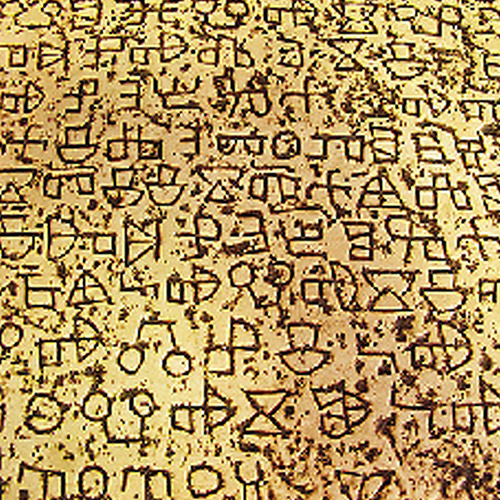
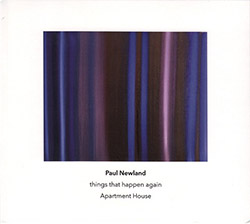

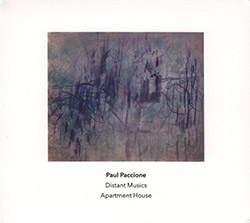


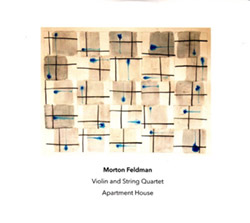
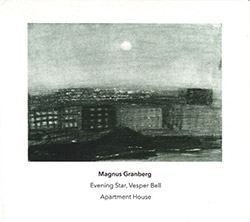
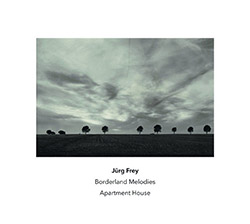
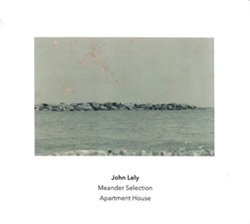
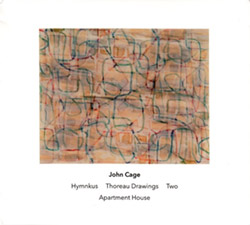
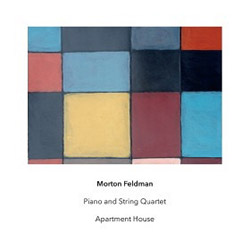
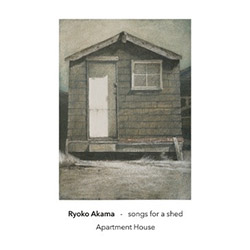
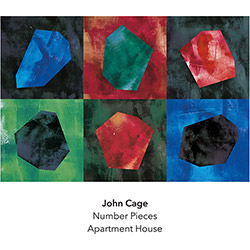
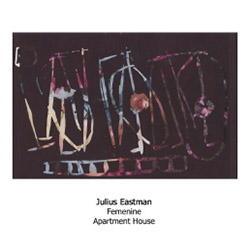

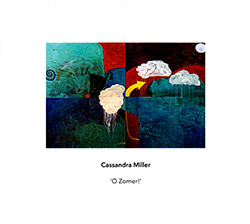


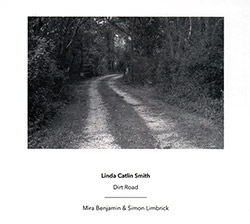







![Guy, Barry / Ken Vandermark: Occasional Poems [2 CDs]](https://www.teuthida.com/productImages/misc4/34849.jpg)
![Novoa / Carter / Mela Trio: Vol.1 [VINYL]](https://www.teuthida.com/productImages/misc4/35236.jpg)


![Elephant9 : Mythical River [VINYL]](https://www.teuthida.com/productImages/misc4/34624.jpg)
![Evans, Peter (Evans / Eldh / Black): Extra [VINYL]](https://www.teuthida.com/productImages/misc4/35279.jpg)

![McPhee, Joe: Straight Up, Without Wings [BOOK]](https://www.teuthida.com/productImages/misc4/35454.jpg)
![Jeck, Philip: rpm [2 CDs]](https://www.teuthida.com/productImages/misc4/35455.jpg)













![Barker / Parker / Irabagon: Bakunawa [VINYL]](https://www.teuthida.com/productImages/misc4/35533.jpg)
![Blaser, Samuel / Marc Ducret / Peter Bruun: Dark Was The Night, Cold Was The Ground [VINYL 10-inch]](https://www.teuthida.com/productImages/misc4/35492.jpg)








![Warren, Kenny (Warren / Hoffman / Ellman): Sweet World [VINYL]](https://www.teuthida.com/productImages/misc4/35451.jpg)




![Blake, Ran / Dave Knife Fabris: Live Amsterdam 2006, First Visit [CD + POSTCARDS]](https://www.teuthida.com/productImages/misc4/35275.jpg)













![DNS: Taking Big Bites Of The Khandas Three Cafes Deep [2 CDs]](https://www.teuthida.com/productImages/misc4/35334.jpg)




![Cleaver, Gerald: The Process [VINYL]](https://www.teuthida.com/productImages/misc4/34966.jpg)




![Alva Noto: HYbr:ID II [VINYL 2 LPs]](https://www.teuthida.com/productImages/misc4/35201.jpg)

![Baron, Derek / Luke Martin: Distinct and Concealed [CASSETTE + DOWNLOAD]](https://www.teuthida.com/productImages/misc4/35079.jpg)

![Lyle, Erica Dawn : Colonial Motels [CASSETTE + DOWNLOAD]](https://www.teuthida.com/productImages/misc4/35080.jpg)









![Sanna, Claudio: Compositori Sardi Contemporanei II [2 CDs]](https://www.teuthida.com/productImages/misc4/35317.jpg)







![Zurria, Manuel: Fame di Vento [3 CDs]](https://www.teuthida.com/productImages/misc4/35167.jpg)

![Granberg, Magnus / Nattens Inbrott / Skogen: Holde Traume, Kehret Wieder! [2 CDs]](https://www.teuthida.com/productImages/misc4/35038.jpg)
![Frey, Jurg: Outermost Melodie [2 CDs]](https://www.teuthida.com/productImages/misc4/35039.jpg)

![Pavone, Jessica: Reverse Bloom [VINYL]](https://www.teuthida.com/productImages/misc4/34895.jpg)



![Modney (Modney / Wooley / Gentile / Roberts / Pluta / Symthe / ...): Ascending Primes [2 CDs]](https://www.teuthida.com/productImages/misc4/34852.jpg)








![Elephant9 with Terje Rypdal: Catching Fire [VINYL 2 LPs]](https://www.teuthida.com/productImages/misc4/35355.jpg)
![Deerlady (Obomsawin, Mali / Magdalena Abrego): Greatest Hits [VINYL]](https://www.teuthida.com/productImages/misc4/34876.jpg)




![Haino, Keiji: Black Blues [2 CDs]](https://www.teuthida.com/productImages/misc4/35109.jpg)



![Surplus 1980: Illusion of Consistency [CD]](https://www.teuthida.com/productImages/misc4/35069.jpg)
![Staiano, Moe: Away Towards the Light [VINYL + DOWNLOAD]](https://www.teuthida.com/productImages/misc4/35037.jpg)



![Caveira (Gomes / Sousa / Abras / Ferrandini): Ficar Vivo [VINYL]](https://www.teuthida.com/productImages/misc4/34643.jpg)
![Gregg, J. J. / David Van Auken: Lunar Prairie [CD w/ DOWNLOAD]](https://www.teuthida.com/productImages/misc4/34611.jpg)

![Coultrain: Mundus [VINYL]](https://www.teuthida.com/productImages/misc4/32439.jpg)
![Mattin: Songbook #6 [VINYL]](https://www.teuthida.com/productImages/misc4/27317.jpg)
![Punkappella: Wake Up [7-inch VINYL]](https://www.teuthida.com/productImages/misc4/17519.jpg)
![Residents, The: WARNING: UNiNC.: Live And Experimental Recordings 1971-1972 [VINYL 2 LPs]](https://www.teuthida.com/productImages/misc4/31521.jpg)
![Coultrain: Phantasmagoria [VINYL]](https://www.teuthida.com/productImages/misc4/30142.jpg)
![Lennon, Sean Ono: Asterisms [VINYL]](https://www.teuthida.com/productImages/misc4/34517.jpg)

![Coley, Byron: Dating Tips for Touring Bands [VINYL]](https://www.teuthida.com/productImages/misc4/17906.jpg)

![Lost Kisses: My Life is Sad & Funny [DVD]](https://www.teuthida.com/productImages/misc4/lostKissesDVD.jpg)